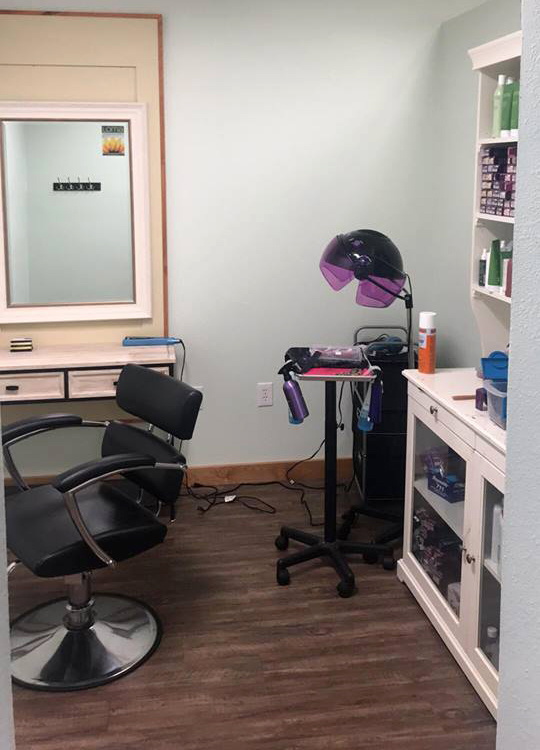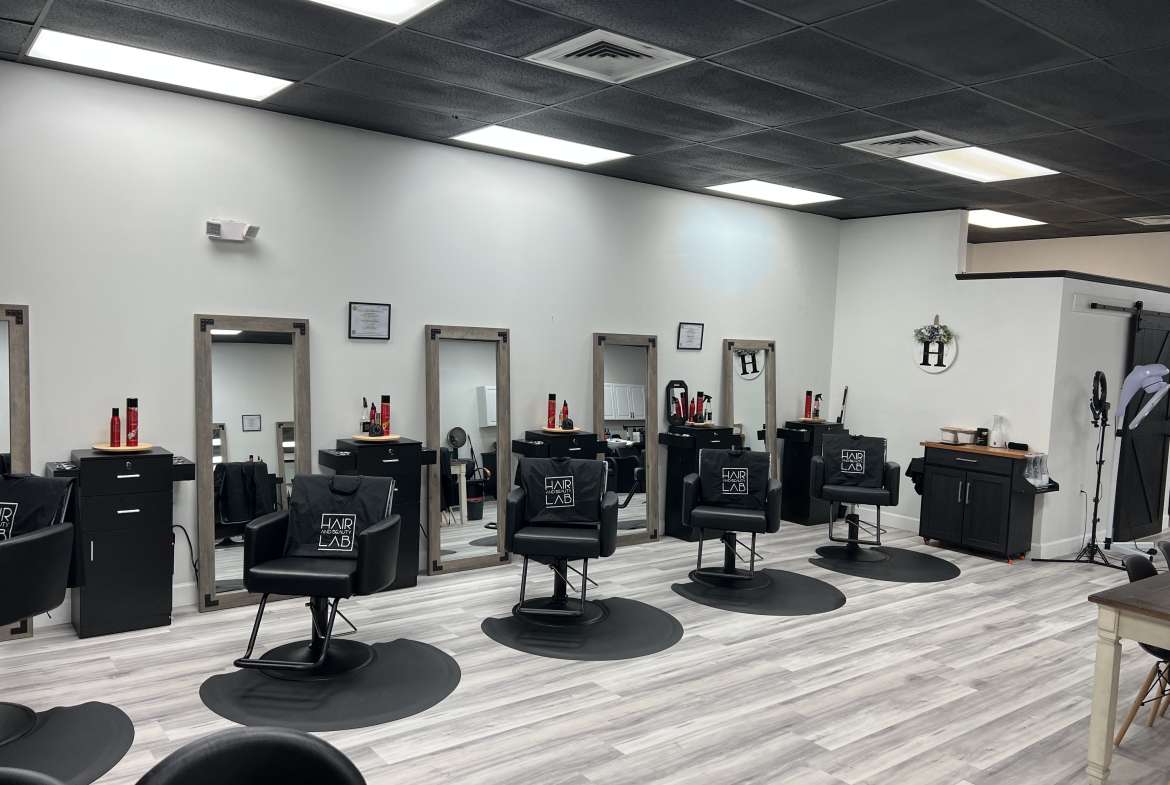Prime Hair Salon for Rent: Perfect Place for Your Company
Prime Hair Salon for Rent: Perfect Place for Your Company
Blog Article
Strategic Choices: Evaluating the Advantage of Leasing Versus Owning a Hair Salon Area to Optimize Long-Term Success and Financial Feasibility
When it concerns establishing a salon service, one of the important decisions that proprietors must very carefully consider is whether to lease or own the area in which they operate. The selection between renting out and owning a beauty parlor room can have a considerable influence on the long-term success and monetary health of business. Elements such as functional flexibility, monetary effects, and investment prospective play a crucial function in this critical decision-making process. By exploring the advantages and disadvantages of each alternative, salon owners can make educated options that straighten with their business goals and goals.

Benefits And Drawbacks of Leasing
When considering the decision in between renting out a beauty parlor area or owning one, it is vital to consider the advantages and disadvantages of renting to make an enlightened option. One primary benefit of renting a hair salon area is the flexibility it supplies. Leasing allows salon owners to check different areas or high end their service without the commitment of a lasting home loan. In addition, leasing typically entails fewer in advance costs, making it a much more accessible choice for new beauty parlor owners or those with budget plan restraints.

Financial Elements to Take Into Consideration

Thinking about the economic implications of leasing a hair salon space versus owning one is necessary for making an educated business choice. When reviewing the financial elements, it is critical to assess the preliminary expenses connected with each alternative. Renting a salon area normally calls for a down payment and monthly lease payments, whereas having includes a down settlement, mortgage payments, home taxes, and maintenance costs.
Furthermore, the long-lasting monetary effects differ in between renting out and possessing. Renting out supplies adaptability however may lead to higher cumulative prices with time due to rental increases. On the other hand, possessing a hair salon room uses prospective equity growth and the opportunity to construct properties. It is essential to carry out a cost-benefit analysis to establish which alternative lines up finest with your financial objectives and service technique.
Renting may supply lower in advance prices, allowing you to assign even more sources to marketing and company development. Reviewing these financial variables thoroughly will aid you make a strategic decision that enhances your hair salon's lasting success and financial practicality.
Functional Versatility and Control
Optimum functional performance plays a critical role in identifying the balance between versatility and control when making a decision in between renting out and possessing a salon space. Renting a salon space offers fundamental versatility as it permits much easier beauty salon facial modifications to altering market conditions, client preferences, or company needs. This flexibility is particularly advantageous for new salon owners or those looking to examine various places before committing long-term. Additionally, renting out supplies the advantage of not being connected down to a particular residential property, making it possible for much easier relocation if necessary.
On the other hand, possessing a beauty salon room supplies a greater sense of control over the property and its procedures. Owners have the flexibility to tailor the space to their taste, execute lasting techniques without the threat of lease terminations, and possibly build equity in time. Ownership likewise comes with duties such as residential or commercial property upkeep, insurance policy, and residential or commercial property tax obligations, which can impact the total financial commitment.
Eventually, the choice in between leasing and owning ought to take into consideration the desired level of operational versatility and control that lines up with the hair salon's long-term goals and vision.
Investment Potential in Possession
Given the functional factors to consider reviewed previously, checking out the investment potential in salon possession loses light on the monetary ramifications and long-lasting benefits that come with owning a hair salon area. Beauty salon ownership presents an unique possibility for business owners to develop equity and assets in time. By buying a beauty salon space, proprietors have the prospective to take advantage of property admiration, which can offer as a valuable property in the future. Additionally, possessing a beauty salon provides security in regards to set home loan settlements, using predictability in financial preparation compared to changing rental rates.
In addition, ownership enables for greater control over the area, making it possible for proprietors to personalize and customize the hair salon to their specific brand and vision without the restraints often imposed by property managers. This degree of control can enhance the overall client experience and brand name identification, possibly leading to boosted customer haircut places retention and organization development.
In regards to investment potential, having a beauty parlor room can additionally open possibilities for additional revenue streams, such as renting unused area to other charm experts or integrating retail sales within the beauty parlor. Booth rental. These diversified revenue resources can add to the total economic wellness and sustainability of business
Long-Term Security and Development
With an emphasis on sustainability and development gradually, developing long-lasting stability and promoting growth are critical aspects of salon possession. To make certain lasting security, beauty salon owners should very carefully think about factors such as location, market fads, and monetary planning. Choosing in between renting out and having a beauty salon space plays a substantial duty in identifying business's growth capacity.
Renting a salon area offers flexibility and reduced initial prices, enabling owners to designate resources in the direction of improving solutions and advertising and marketing efforts. Long-lasting rental costs can affect profitability and restrict the capacity to develop equity in the residential or commercial property. On the various other hand, owning a hair salon room supplies stability via repaired home mortgage repayments and the possibility for home admiration. By owning the area, beauty salon proprietors have more control over personalizing the residential or commercial property to suit their brand name and can profit from lasting possession growth.
Ultimately, the decision between renting and possessing a salon space ought to line up with the owner's long-lasting company goals and monetary goals. Whether focusing on versatility or equity building, a calculated technique to building possession can dramatically influence the hair salon's security and development trajectory.
Final Thought
Finally, the decision between renting and owning a hair salon room calls for a cautious evaluation of financial factors, operational adaptability, financial investment capacity, and long-lasting stability. Both alternatives feature their own set of advantages and disadvantages, and it is essential for salon proprietors to evaluate these elements to optimize long-term success and economic viability. click here now Salon suites for rent. Eventually, the choice in between leasing and owning need to be based on an extensive analysis of private company objectives and situations
Report this page